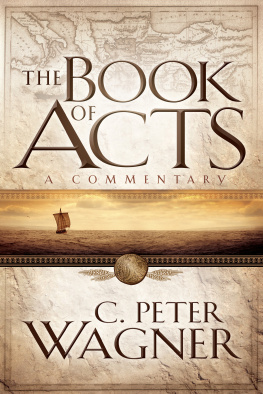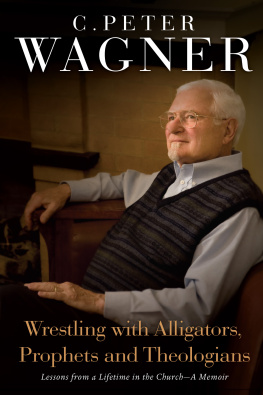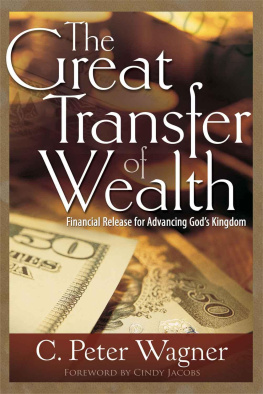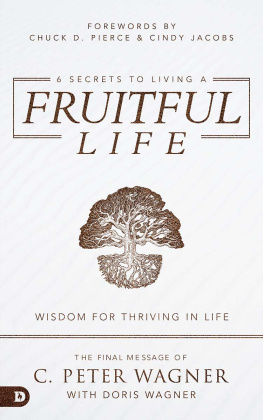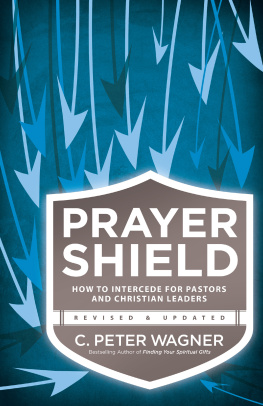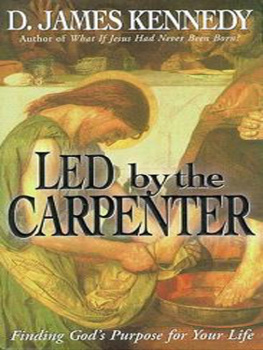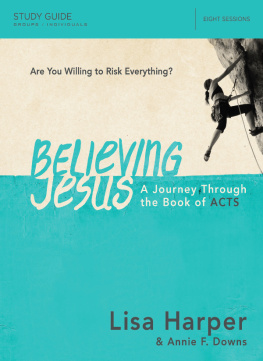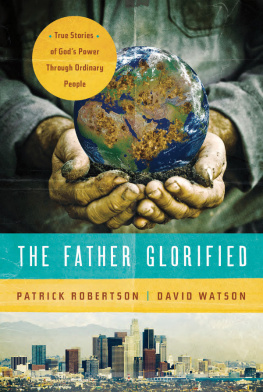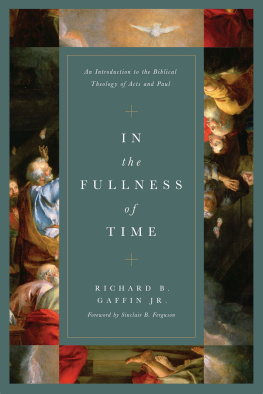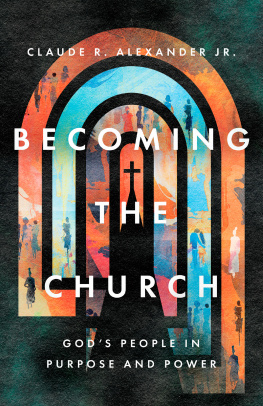C. Peter Wagner - The Book of Acts: A Commentary
Here you can read online C. Peter Wagner - The Book of Acts: A Commentary full text of the book (entire story) in english for free. Download pdf and epub, get meaning, cover and reviews about this ebook. year: 2008, publisher: Baker Publishing Group, genre: Religion. Description of the work, (preface) as well as reviews are available. Best literature library LitArk.com created for fans of good reading and offers a wide selection of genres:
Romance novel
Science fiction
Adventure
Detective
Science
History
Home and family
Prose
Art
Politics
Computer
Non-fiction
Religion
Business
Children
Humor
Choose a favorite category and find really read worthwhile books. Enjoy immersion in the world of imagination, feel the emotions of the characters or learn something new for yourself, make an fascinating discovery.
- Book:The Book of Acts: A Commentary
- Author:
- Publisher:Baker Publishing Group
- Genre:
- Year:2008
- Rating:3 / 5
- Favourites:Add to favourites
- Your mark:
- 60
- 1
- 2
- 3
- 4
- 5
The Book of Acts: A Commentary: summary, description and annotation
We offer to read an annotation, description, summary or preface (depends on what the author of the book "The Book of Acts: A Commentary" wrote himself). If you haven't found the necessary information about the book — write in the comments, we will try to find it.
The Book of Acts: A Commentary — read online for free the complete book (whole text) full work
Below is the text of the book, divided by pages. System saving the place of the last page read, allows you to conveniently read the book "The Book of Acts: A Commentary" online for free, without having to search again every time where you left off. Put a bookmark, and you can go to the page where you finished reading at any time.
Font size:
Interval:
Bookmark:

1994, 1995, 2000, 2008 C. Peter Wagner
Published by Chosen Books
11400 Hampshire Avenue South
Bloomington, Minnesota 55438
chosenbooks.com
Chosen Books is a division of
Baker Publishing Group, Grand Rapids, Michigan.
www.bakerpublishinggroup.com
Chosen edition published 2014
ISBN 978-1-4412-6891-4
Previously published by Regal Books
First edition published as The Acts of the Holy Spirit Series: Spreading the Fire, Blazing the Way and Lighting the World in 1995.
Second edition published as The Acts of the Holy Spirit in 2000.
Third revised and updated edition published as The Book of Acts in 2008.
Ebook edition originally created 2011
All rights reserved. No part of this publication may be reproduced, stored in a retrieval system, or transmitted in any form or by any meansfor example, electronic, photocopy, recordingwithout the prior written permission of the publisher. The only exception is brief quotations in printed reviews.
Library of Congress Cataloging-in-Publication Data is on file at the Library of Congress, Washington, DC.
All Scripture quotations, unless otherwise indicated, are taken from the New King James Version. Copyright 1979, 1980, 1982 by Thomas Nelson, Inc. Used by permission. All rights reserved.
Other versions used are:
GNB Scripture taken from the Good News Translation, Second Edition, Copyright 1992 by American Bible Society. Used by Permission.
THE MESSAGE Scripture taken from THE MESSAGE . Copyright by Eugene H. Peterson, 1993, 1994, 1995. Used by permission of NavPress Publishing Group.
NIV Scripture taken from the Holy Bible, New International Version . Copyright 1973, 1978, 1984 by International Bible Society. Used by permission of Zondervan Publishing House. All rights reserved.
TLB Scripture quotations marked ( TLB ) are taken from The Living Bible , copyright 1971. Used by permission of Tyndale House Publishers, Inc., Wheaton, IL 60189. All rights reserved.
CONTENTS

By Ralph Winter
FOREWORD

In this remarkable book, C. Peter Wagner concedes up front that his commentary is not the first ever written on the book of Acts. By his count, his book is commentary number 1,339 of the commentaries on Acts that have been produced in English! However, what Wagner does with Acts could hardly have been done before; never has an internationally known missiologist turned his heart and mind to such a task.
In Wagners hands this unique book of the Bible is seen as the very hinge (the one full-blown biblical description) of a mighty move of Goda move that had been foreshadowed from the time of Abraham, but not fully unleashed until the events chronicled in Acts. From that point on, the rest of history would continue to reveal the kind of transitions that we read about in The Book of Acts.
Acts explains how a true heart faith in a living, loving, self-sacrificing, forgiving, holy heavenly Father would expand as the kingdom of God encompassed more and more of the worlds diverse cultures. But it is much more complicated than that. Acts portrays the consternation of the holdouts, in addition to the amazement and joy of the recipients of Gods blessing. It shows the legalists on both sides who could not see the need for true faith within the cultural forms of either Jew or Greek. Wagners commentary clearly demonstrates the excitement that can result when a heart faith is transmitted by earthen vessels (men and women) of one nation to another. This extraordinary commentary provides a stirring account of those specific events that took place after centuries of Jewish witness had attracted maybe a million Gentiles to the back rowa mere second-class statusin the thousands of Jewish synagogues throughout the Roman Empire and places beyond. In Wagners book we see and feel the exuberant delight of those astounded and grateful Gentiles who allowed Pauls gospel to sink into their hearts. The explosive implication, which was revealed earlier to Abraham, was that all the world was, and is, invited to receive this faith, this fellowship with the Almighty, regardless of the clothing and cultural specifics of those who desire to receive it.
We also see the perplexity and fury of those Jewsdevout and otherwisewho could not for the life of them perceive the continuities of their faith in the detested Gentile outer garments any more than many of us today can readily identify our version of that same faith in the many astounding garments that it already wears throughout todays global reality.
In this volume, the book of Acts is clearly exposited as illuminating other writings of Paul, such as his loyal defense of the Jewish tradition in both Romans 911 and Romans 14. Above all, the way that Wagner handles these events relentlessly presses home the vibrancy and authenticity of the work of the Holy Spirit both then and now. The result is that we cannot help but catch the warm encouragement of that same spiritual reality in our own lives today.
The book of Acts rightly understoodand Wagners work excels all others in thisthrows penetrating light on the present enigmas of missionary outreach to the last people, tribe and tongue on Earth. It helps us cope with the major resistant blocks of Hindus, Muslims, Buddhists, Japanese and others, as well as with the smallest human community anywhere at all.
The Book of Acts dispels once and for all the thought that the New Testament tells how a true faith was developed out of a defunct Jewish tradition. Rather, it portrays with great accuracy how a true faith in Jewish clothes, often invisible, could become an equally true faith in a radically different form. It also provides a paradigm to understand how that same true faith could become highly visible, and also how it could wane drastically from time to time as subsequent history unfolded.
Acts, as Wagner sees it, is not the end of the story, but rather the most definitive biblical account of exactly how our faith, with all its complexity, can and will engage and encompass every people, tribe and tongue in this generation.
I cannot think of any single biblical commentary that deserves more praise or more serious attention than The Book of Acts. Peter Wagner gives us all a new Acts for new times, one of crucial value and of almost unique significance in biblical literature.
Ralph D. Winter
Director, U.S. Center for World Mission
Pasadena, California
OUR TIMELINE FOR UNDERSTANDING ACTS

Not all scholars agree on the dates for the sequence of events in the book of Acts. Although the matter has been thoroughly researched by competent specialists, there is not yet consensus. I will not repeat the arguments for different timelines that are readily accessible in the various critical commentaries, but it is necessary to form an opinion. Here are some of the chief dates that I am adopting (all dates are A.D.):
| 30 | Pentecost |
| 31 | Persecution from fellow Jews becomes severe |
| 32 | The gospel moves from the Hebrews to the Jewish Hellenists |
Font size:
Interval:
Bookmark:
Similar books «The Book of Acts: A Commentary»
Look at similar books to The Book of Acts: A Commentary. We have selected literature similar in name and meaning in the hope of providing readers with more options to find new, interesting, not yet read works.
Discussion, reviews of the book The Book of Acts: A Commentary and just readers' own opinions. Leave your comments, write what you think about the work, its meaning or the main characters. Specify what exactly you liked and what you didn't like, and why you think so.

